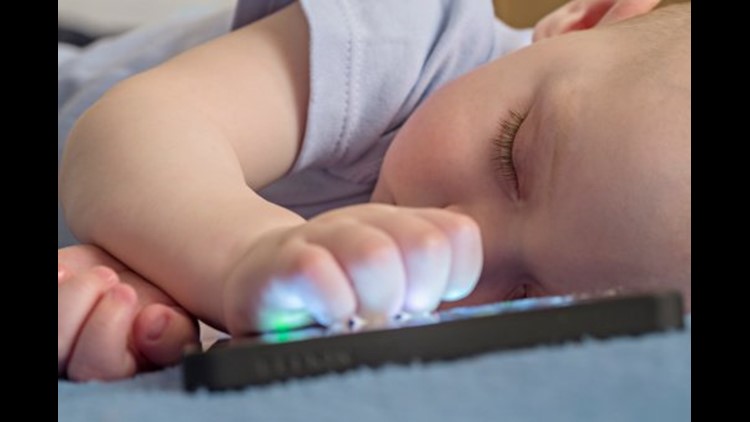(CNN) — Alan Stephenson wants his child to go to sleep easily at night.
And that means his son, age 11, can’t take his Kindle or other electronic devices upstairs, where their bedrooms are located.
“Upstairs are bedrooms only, which I want to remain tranquil and quiet, so our rule is no screens upstairs,” says Stephenson, of Maplewood, New Jersey. “Thus, no confusion. When he goes upstairs, it’s time to sleep.”
Stephenson may be onto something.
Children who sleep with smart phones or other “small screens” in their bedrooms reported sleeping less during the week compared to children without the devices in their rooms, according to a new study published in the February issue of Pediatrics, the American Academy of Pediatrics scientific journal.
Sleep is important to children’s well-being in a multitude of ways.
It may affect children’s school performance, psychological and social well-being, immunity, risk-taking behaviors such as smoking and drinking, according to Jennifer Falbe, a public health researcher at the University of California, Berkeley and the study’s lead author. It may also play a role in obesity, she said.
More than 2,000 fourth- and seventh-graders participated in the study through the Massachusetts Childhood Obesity Research Demonstration Study in 2012 and 2013.
Just over half of the study’s children reported sleeping near a small screen, while three in four children reported sleeping in the same room as a television.
The fourth-graders slept an average of 9.8 hours during the week, while seventh-graders slept 8.8 hours on weeknights. But small screens and television screens were linked to less sleep.
Children who slept near a small screen reported getting 21 fewer minutes of sleep per weeknight compared to children who didn’t sleep with small screens in their rooms, the study found.
Small screens had another impact: Children who slept near a small screen on weeknights thought that they hadn’t gotten enough sleep.
Television had nearly the same impact. Children with televisions in their bedrooms reported getting 18 fewer minutes of sleep per weeknight, findings backed up by earlier research.
The children could be staying up later using their devices, Falbe says, but it’s also possible that beeping text messages and other alerts disturb their sleep.
While Falbe says more research is needed to understand the impact of screens on children’s sleep, she notes that the American Academy of Pediatrics already recommends making bedrooms “screen-free” zones.
“Considering the overall evidence on screens and health, it’s recommended that parents keep screen media out of their child’s bedroom, limit total screen time and set a curfew for these devices,” says Falbe. “Set realistic but firm rules. For example, you can make sure electronic devices are off at least one hour before bedtime.”
Psychologist Jessica Kellstein wants her two daughters, ages 11 and 9, to settle down for bed without any distractions. That’s why the Newton, Massachusetts, mother keeps their Kindles and her older daughter’s cell phone out of their bedroom at night.
“I keep them out of their room to help them settle for bed without screen glow and not to be tempted to go on after bedtime,” says Kellstein.
“I work with plenty of teens who sleep with their phone and are texting into the early morning hours when they should sleep, so I am establishing ground rules now when there isn’t the peer demand on the other end yet.”



